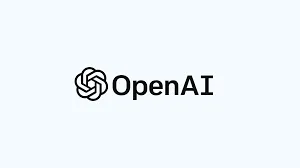
OpenAI has taken a surprising turn, deciding to open-source its technology. Following the recent release of a paper about Consistency Models, the company has decided to share its AI Art Generation technology with the public. OpenAI has been criticized for its closed-door policy, but this move towards open source demonstrates a change in direction. The company has also announced a bug bounty program to encourage researchers to detect and report system bugs.
Also Read: Microsoft Releases VisualGPT: Combines Language and Visuals
Consistency Models: A Breakthrough in AI Art Generation

Consistency models are generative models designed for one-step and few-step generation. According to the paper by OpenAI, the application of consistency distillation outperforms the diffusion model approach in various benchmarks. These models enable zero-shot image editing applications, such as colorization, inpainting, denoising, interpolation, and stroke-guided generation, just like diffusion models. However, consistency models require significantly less computational power, allowing for quicker results on single devices.
The Minds Behind the Research
The authors of the paper include Ilya Sutskever, the creator of ChatGPT; Yang Song; Mark Chen; and Prafulla Dhariwal. Although diffusion models outperformed GANs in image, audio, and video generation, their iterative generation process limited the sampling speed and potential for real-time applications. Consistency models overcome this limitation by offering high sample quality without adversarial training. This allows for a fast one-step generation or a maximum of two steps.
Also Read: OpenAI Co-Founder & Chief Data Scientist On the Potential of AGI
How Do Consistency Models Work?
Consistency models work by training the model to observe the noising process of an image, similar to diffusion models. However, this model can pick up an image at any level of obscuration and generate a perfect image in a single step, even when it has been fed with missing information. As a result, consistency models can achieve the final result much faster, even with noisy images.
Why Do Consistency Models Matter?
The development of consistency models is significant because machine learning research typically involves establishing a technique, improving upon it, and then fine-tuning it over time while adding computation to produce drastically better results. This is how modern diffusion models and ChatGPT came to be. However, this process is self-limiting due to the practical limitations on how much computation can be dedicated to a given task.
The next step involves the creation of a new, more efficient technique that initially performs worse but is significantly more efficient than previous models. Consistency models demonstrate this potential, though direct comparison with diffusion models is still premature.
The Future of AI Art Generation

As OpenAI takes steps to move beyond the competition, consistency models could be the next step for AI image generation, building on the success of GPT-4 in chatbots. Popular tools like Midjourney and Stable Diffusion rely on diffusion models. But introducing these models by OpenAI may lead to faster and more efficient AI art generation.
Also Read: Alien-Inspired Spacecraft Design: NASA’s Bold Leap Into Space’s Future
Our Say
OpenAI’s decision to open-source its Consistency Models is a significant move that marks a change in direction for the company. These generative models offer improved efficiency and faster results compared to diffusion models. This makes them a potential game-changer in AI art generation. The development of more efficient techniques like this demonstrates the potential for continued progress in machine learning research. As OpenAI continues to push the boundaries of what AI can achieve, we can expect to see further advancements in image synthesis and other fields in the future.





